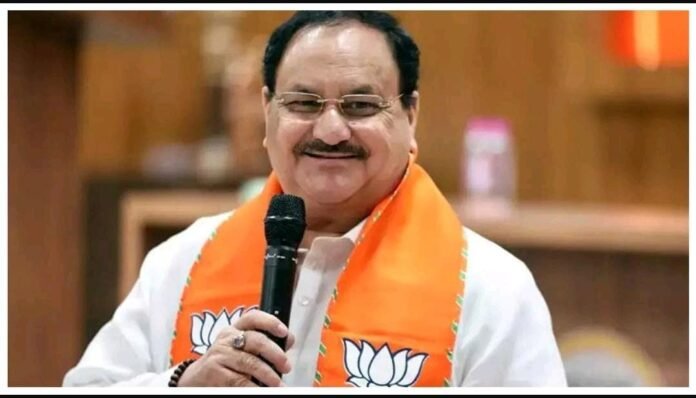In a significant development, Bharatiya Janata Party (BJP) President, JP Nadda, has undertaken a strategic reshuffling of the party’s top leadership, introducing fresh faces and promoting seasoned individuals to key positions. Among the notable appointments is the elevation of a distinguished academician, the former Vice-Chancellor of Aligarh Muslim University (AMU), to the prestigious role of BJP National Vice President.
The restructuring move comes at a crucial juncture for the BJP, as the party continues to strengthen its organizational structure and prepare for upcoming electoral challenges. With an eye on broadening its support base and fostering inclusivity, Nadda’s team rejig aims to strike a balance between experience and new talent, as well as regional representation.
The appointment of the former AMU VC as a National Vice President is garnering attention, as it reflects the BJP’s commitment to embracing leaders from diverse backgrounds. His induction into the party’s top echelons highlights the party’s efforts to reach out to intellectuals and professionals from various spheres, fostering a dynamic and representative leadership.
Throughout his tenure as AMU VC, the appointee earned recognition for his commitment to academic excellence, innovative reforms, and administrative acumen. His foray into politics now offers a unique opportunity for the BJP to tap into his visionary leadership and leverage his understanding of educational issues to shape the party’s policies effectively.
While the specific portfolios for the newly appointed members are yet to be announced, political analysts anticipate that Nadda’s reshuffle may bring fresh perspectives to key party roles. With a focus on bolstering organizational efficiency, the revamped team aims to streamline decision-making processes, enhance communication, and strengthen the party’s connect with the grassroots.
This strategic realignment underscores the BJP’s proactive approach in maintaining its dominance on the national political landscape. By instilling a mix of experience, expertise, and enthusiasm, the party demonstrates its commitment to embrace change and adapt to evolving socio-political dynamics.
Moreover, Nadda’s move also addresses the need for regional representation within the party’s leadership ranks. By inducting leaders from diverse states and communities, the BJP aims to bolster its appeal to a wider range of voters while ensuring the interests of different regions are adequately represented at the national level.
As the reshuffled team gears up to tackle future electoral challenges, it will be closely watched by political observers and adversaries alike. The BJP’s choice to restructure its leadership with a balanced blend of seasoned politicians and fresh faces could prove to be a strategic masterstroke in navigating the intricate dynamics of Indian politics.

